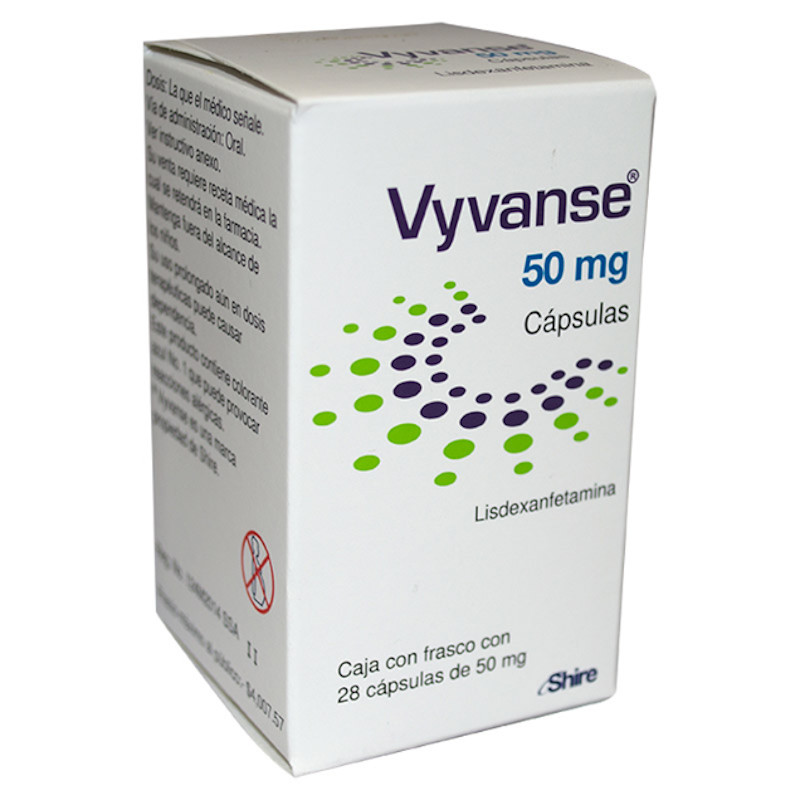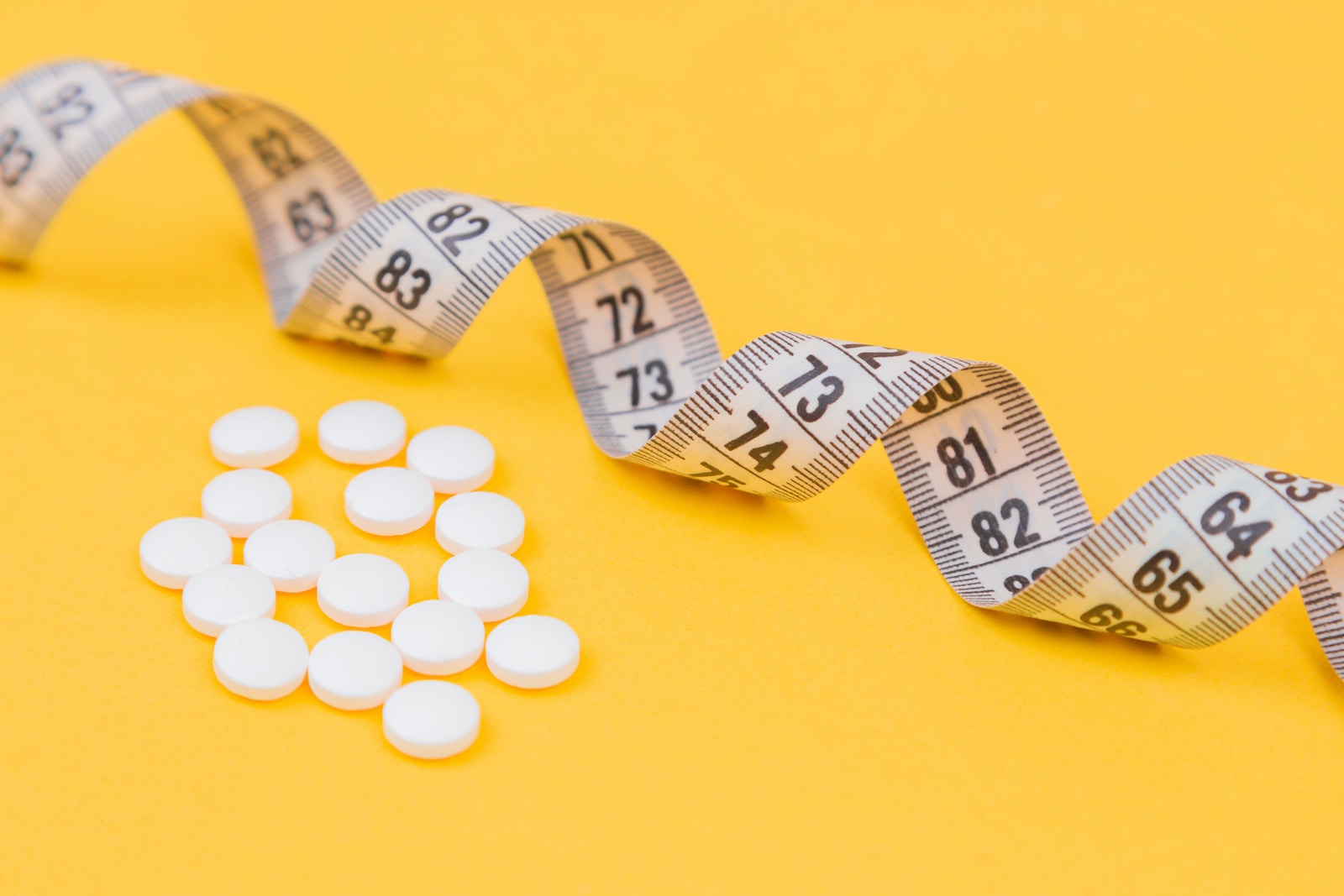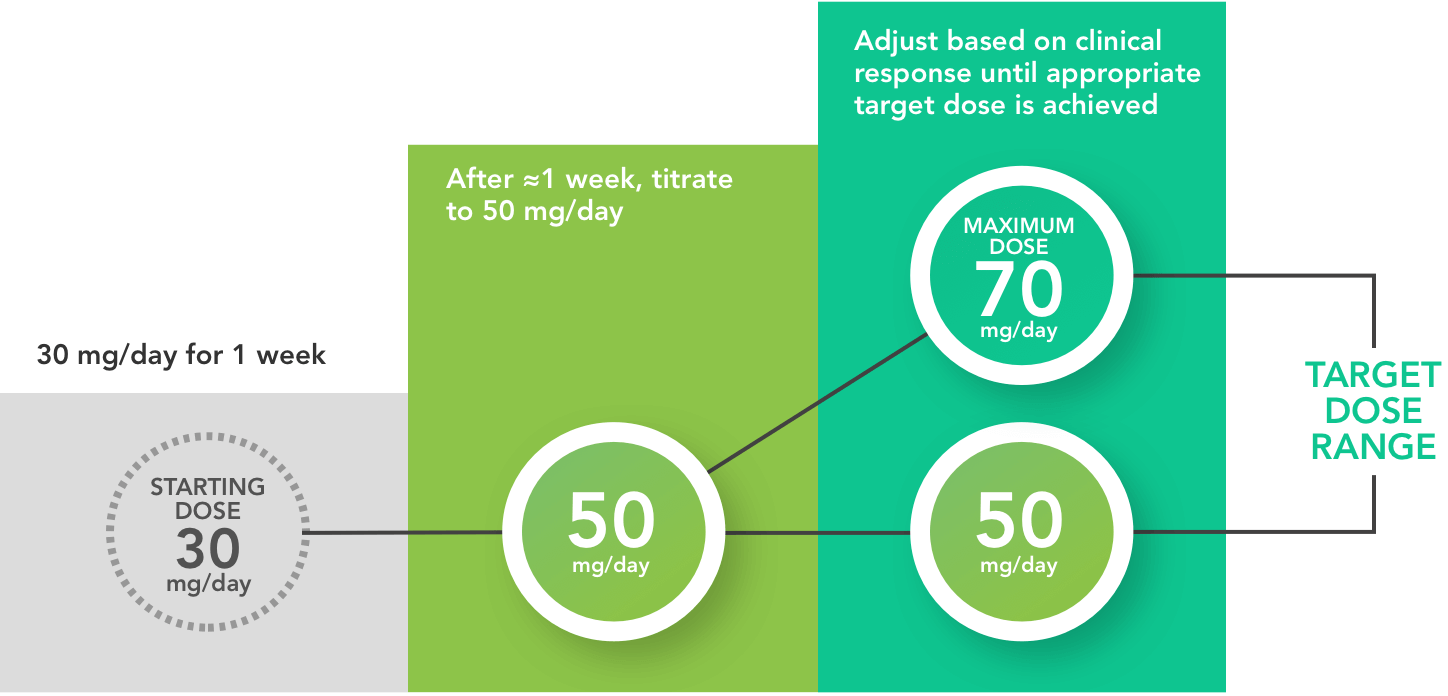Vyvanse, also known as lisdexamfetamine, is a central nervous system stimulant primarily prescribed for the treatment of attention deficit hyperactivity disorder (ADHD) and binge eating disorder (BED). While it is not specifically approved for weight loss, many individuals have reported experiencing weight loss as a side effect when taking Vyvanse. A significant aspect contributing to this weight loss is the drug’s impact on reducing appetite, increasing metabolism, and boosting motivation.
However, it is crucial to note that Vyvanse should not be taken solely for the purpose of weight loss or for treating obesity. The medication is designed to treat specific disorders and taking it without a proper prescription can lead to potential risks and side effects. Additionally, Vyvanse can be habit-forming and has the potential for abuse, making it even more essential to adhere to prescribed guidelines.
In conclusion, weight loss might be experienced by some individuals taking Vyvanse for its approved uses, such as ADHD and BED. However, it is not recommended for those solely seeking weight loss, as the risks may outweigh the potential benefits. Always consult with a qualified healthcare professional before considering any medication for weight loss purposes.
Reader's Roadmap
Overview of Vyvanse
Vyvanse, also known as lisdexamfetamine, is a central nervous system stimulant that belongs to a class of drugs called amphetamines. It is a prescription medication primarily used for the treatment of attention deficit hyperactivity disorder (ADHD) in both children and adults. As a stimulant, Vyvanse is known to increase alertness and focus, making it easier for individuals with ADHD to stay on task and improve overall functioning in daily life.
Vyvanse works by affecting certain chemicals in the brain, specifically dopamine and norepinephrine, which help regulate attention, impulsivity, and hyperactivity. This is achieved through the drug’s gradual conversion in the body to dextroamphetamine, an active component that stimulates the central nervous system. In addition to its use in treating ADHD, Vyvanse has also been approved by the FDA for the treatment of moderate to severe binge eating disorder (B.E.D.) in adults. However, it is important to note that Vyvanse is not intended for weight loss or the treatment of obesity.
The dosage of Vyvanse varies depending on the individual and the condition being treated, with lower doses typically given to children and gradually increased if necessary. The medication is available in both oral capsules and chewable tablet forms, making it easy to accommodate different preferences and needs.
Although Vyvanse has been proven effective in managing symptoms of ADHD and B.E.D., like all medications, it may cause side effects. Common side effects of Vyvanse include dry mouth, decreased appetite, weight loss, and trouble sleeping. However, as Vyvanse is a medication that directly affects the central nervous system, it also has the potential for misuse and dependency. For this reason, Vyvanse is classified as a Schedule II controlled substance, and healthcare providers closely monitor its use in patients to ensure safe and effective treatment.
In summary, Vyvanse is a central nervous system stimulant that plays a crucial role in the management of ADHD symptoms and the treatment of moderate to severe binge eating disorder in adults. Its mechanism of action involves the regulation of brain chemicals, making it an effective option for those struggling with these conditions. Patients should consult their healthcare provider to determine if Vyvanse is an appropriate medication for their needs and to minimize the risk of side effects and potential misuse.

Weight Loss and Vyvanse
Vyvanse is a medication primarily prescribed for treating attention deficit hyperactivity disorder (ADHD) and binge eating disorder (BED). While it is not approved as a weight loss drug or to treat obesity, some individuals may experience weight loss as a side effect due to its appetite-suppressing effects. However, this is not a guaranteed outcome and may vary from person to person.
The appetite-suppressing effect of Vyvanse can lead to a decreased appetite or loss of appetite in some users. This, in turn, may result in a reduction of overall caloric intake, potentially contributing to weight loss over time. In clinical trials of ADHD, weight loss was observed as a possible side effect.
Vyvanse has also been shown to help control certain eating disorders, such as binge eating disorder (BED), by reducing the frequency of binge episodes. While it is not approved specifically for weight loss, the use of Vyvanse for moderate-to-severe BED can indirectly contribute to some weight loss in affected individuals.
It is essential for those taking Vyvanse and experiencing weight loss to consult with a healthcare provider, as sustained weight loss may not be a healthy long-term strategy. Furthermore, proper monitoring and adjustment of Vyvanse dosage may be necessary to ensure that the medication addresses the intended condition without causing undesirable side effects.
In conclusion, while Vyvanse might lead to weight loss in some individuals due to its appetite-suppressing effects, it is not a guaranteed or approved weight loss solution. It is essential to consult with a healthcare professional before using Vyvanse for the management of weight or obesity.

Vyvanse and ADHD
Vyvanse is a prescription medication used to treat attention deficit hyperactivity disorder (ADHD) in both children and adults. ADHD is a neurodevelopmental disorder characterized by symptoms such as inattention, hyperactivity, and impulsivity. These symptoms can be disruptive and cause difficulties in various aspects of daily life, including school, work, and social interactions.
The active ingredient in Vyvanse is dextroamphetamine, a central nervous system stimulant that affects chemicals in the brain and nerves that contribute to hyperactivity and impulse control. Vyvanse works by increasing the levels of certain neurotransmitters, such as dopamine and norepinephrine, which help in maintaining focus and improving attention span. This medication is typically taken once daily in the morning, as taking it in the afternoon or evening can lead to difficulty in falling asleep and insomnia.
It’s important to note that, although Vyvanse is effective in managing ADHD symptoms, it is not a cure for the disorder. Ongoing treatment and therapy are often necessary for long-term management of the condition.
In addition to managing ADHD symptoms, some people may experience weight loss while taking Vyvanse. This side effect is mainly due to the medication’s influence on appetite suppression. According to Mental Health Daily, dextroamphetamine in Vyvanse can suppress appetite, increase energy levels, and speed up metabolism, which may lead to weight loss, especially in the initial stages of treatment. However, it should be noted that Vyvanse is not approved for weight loss or obesity treatment purposes.
In conclusion, Vyvanse plays a significant role in managing ADHD symptoms in both children and adults. It can promote focus, attention, and self-control, enabling individuals with ADHD to function more effectively in various aspects of life. However, the effects of Vyvanse, such as weight loss, can vary from person to person. It’s crucial for individuals taking Vyvanse to work closely with their healthcare provider to ensure optimal treatment outcomes and monitor for potential side effects.
Side Effects of Vyvanse
Vyvanse is a medication prescribed for attention deficit hyperactivity disorder (ADHD) and binge eating disorder. While it can be effective in treating these conditions, it is important to be aware of the potential side effects.
Some common side effects associated with Vyvanse include nausea, vomiting, diarrhea, and dry mouth. These side effects might be mild and tend to disappear as the body adjusts to the medication. However, if they persist or become severe, it is essential to consult a healthcare professional.
In addition to the gastrointestinal side effects, Vyvanse can also cause other physical symptoms such as dizziness and jitteriness. These sensations may be experienced by patients as they adjust to the medication, but if they continue or worsen, it’s crucial to seek medical advice.
Apart from physical side effects, Vyvanse users may experience psychological side effects like insomnia and anxiety. For individuals with ADHD, these side effects may be particularly challenging, as they can exacerbate the symptoms of the disorder. If insomnia or anxiety becomes too disruptive, it’s essential to discuss the issue with a healthcare provider to determine if adjustments to the medication or additional treatments are necessary.
Lastly, Vyvanse may cause constipation in some users. This side effect can be managed by increasing fiber intake, drinking more water, and engaging in regular physical activity. However, if constipation becomes severe or persistent, a healthcare professional should be consulted for advice.
While side effects may be concerning, it is important to remember that each person reacts differently to medication, and not all users will experience these symptoms. Monitoring individual reactions to Vyvanse and communicating any concerns to a healthcare provider can help ensure the safest and most effective treatment experience.
Serious Side Effects and Risks
Vyvanse, a prescription medication used to treat ADHD and binge eating disorder, can cause some serious side effects and pose various risks to users. One of the significant risks associated with Vyvanse is its effect on the cardiovascular system. Users may experience an increased risk of heart attack, stroke, and high blood pressure. These cardiovascular risks are particularly important for individuals who have a history of heart problems or a family history of heart disease.
Moreover, Vyvanse has the potential to cause sudden death in people with pre-existing heart conditions. This is why it’s crucial for individuals considering this medication to disclose their medical history to their healthcare provider, particularly any history of heart problems or risk factors for cardiovascular disease. Doctors will often monitor the heart rate and blood pressure of individuals taking Vyvanse to ensure their safety.
Another significant risk associated with the use of Vyvanse is the development of serotonin syndrome. This rare but potentially life-threatening condition occurs when there’s an excessive accumulation of serotonin in the body, usually as a result of interaction with other medications that affect serotonin levels. The symptoms of serotonin syndrome can include confusion, agitation, muscle stiffness, and increased heart rate. It’s essential for individuals using Vyvanse to inform their healthcare provider about all other medications they are taking to prevent the risk of serotonin syndrome.
Furthermore, Vyvanse use can exacerbate symptoms of depression for some individuals, especially in those with a history of mental health problems. This is why it’s vital for patients to discuss any mental health concerns or history with their healthcare provider before starting Vyvanse.
In conclusion, while Vyvanse can be an effective treatment for ADHD and binge eating disorder, it’s essential for individuals to be aware of the potential serious side effects and risks associated with its use. Ensuring open communication with healthcare providers and monitoring for any concerning symptoms can help mitigate these risks and lead to a safer experience with this medication.
Dependence and Withdrawal of Vyvanse
Vyvanse is a prescription medication used to treat Attention Deficit Hyperactivity Disorder (ADHD). While it can be an effective treatment option for some, it is important to be aware of the potential risks associated with its use. Dependence and withdrawal are two concerns that individuals and healthcare providers must consider when using or prescribing Vyvanse.
Dependence on Vyvanse can occur when a person misuses or abuses the medication. This might involve taking higher doses than prescribed, taking the medication more frequently than directed, or using it for non-medical reasons. Vyvanse addiction can lead to serious consequences for the individual, including physical and psychological health issues.
Withdrawal from Vyvanse can be challenging and uncomfortable, especially if the medication has been used for an extended period. Symptoms of withdrawal can begin within 24 hours after the last dose and may include fatigue, depression, cravings, and increased appetite. These symptoms can peak around 3-5 days after the last dose, with the person experiencing mood swings, aches, irritability, and sleep disturbances.
One of the potential side effects of Vyvanse is weight loss, which can occur due to a decreased appetite or loss of appetite. If an individual stops taking Vyvanse suddenly, they might experience what is called a “Vyvanse crash.” Symptoms of this crash can include severe withdrawal symptoms, such as irritability, anxiety, and fatigue, as well as a sudden return of ADHD symptoms and vivid or lucid dreams. In some cases, psychosis has also been reported as a result of sudden Vyvanse discontinuation.
It is essential to consult with a healthcare provider before stopping or making changes to the use of Vyvanse. They can provide guidance on safely tapering off the medication to minimize withdrawal symptoms and ensure the individual’s health and well-being. Additionally, support and treatment options are available for those struggling with dependence or abuse of Vyvanse.

Precautions and Contraindications
When considering using Vyvanse for weight loss, it is crucial to understand the potential risks and precautions associated with the medication. As a central nervous system (CNS) stimulant, Vyvanse is indicated for the treatment of attention deficit hyperactivity disorder (ADHD) and moderate to severe binge eating disorder (BED) in adults. However, the FDA has stated that Vyvanse should not be used specifically for weight loss.
Vyvanse is a prescription medication and is classified as a controlled substance due to its potential for abuse and dependence. Therefore, it is crucial for physicians to assess patients’ risk of substance misuse before prescribing Vyvanse. Additionally, patients should only use the medication as directed by their healthcare provider.
In regards to pregnancy, the safety of Vyvanse during pregnancy is not fully known. Pregnant individuals or those planning to become pregnant should consult their healthcare provider before starting Vyvanse. The medication’s effects on the developing fetus remain unclear, and potential risks should be thoroughly discussed with a healthcare professional.
There is limited information available regarding the use of Vyvanse during breastfeeding. However, as CNS stimulants can pass into breast milk, caution should be exercised when using Vyvanse while nursing. It is essential to discuss the potential risks and benefits of the medication with a healthcare provider if you are breastfeeding.
The use of alcohol while taking Vyvanse is not recommended, as it may exacerbate the medication’s side effects and increase the risk of abuse and dependence. Alcohol consumption can impair judgment, increase drowsiness, and decrease the overall effectiveness of the medication. It is best to avoid or limit alcohol intake while using Vyvanse.
In conclusion, before considering using Vyvanse for weight loss, it is important to understand the associated precautions and contraindications. Always consult a healthcare professional before beginning any new prescription medication, and follow their recommendations and guidelines closely.
Vyvanse in Relation to Other Medications
When it comes to treatment for Attention-Deficit/Hyperactivity Disorder (ADHD), Vyvanse (lisdexamfetamine dimesylate) has become increasingly popular. While many individuals have reported weight loss as a side effect, it is important to consider how Vyvanse interacts with other medications before use.
One of the most commonly prescribed medications for ADHD is Adderall, which contains a mixture of amphetamine and dextroamphetamine. Similar to Vyvanse, Adderall is known for its appetite-suppressing effects, which can contribute to weight loss. However, these stimulant medications are not approved solely for weight loss purposes, and their use should be closely monitored by a healthcare professional.
Methylphenidate is another ADHD medication, found in drugs like Concerta and Ritalin. Although not identical to Vyvanse, it shares similar side effects and should be used with caution when taken together. Both medications work by increasing activity in the central nervous system, and combining them may lead to overstimulation or adverse effects.
It is crucial to be cautious when mixing Vyvanse with prescription drugs, particularly monoamine oxidase inhibitors (MAOIs). Combining these two classes of medications can lead to serious, even life-threatening, interactions. It is generally advised to avoid taking an MAOI within two weeks of discontinuing Vyvanse or a similar medication.
Another medication to be mindful of is Linezolid, an antibiotic that also has MAOI properties. The combination of Linezolid and Vyvanse has the potential to cause a dangerous increase in blood pressure, among other complications. Consequently, proper communication with healthcare professionals is essential when using Vyvanse and other prescription medications.
In conclusion, understanding the relationship between Vyvanse and other medications is crucial for safe and effective treatment. Properly managing medication interactions will help to minimize risks, maximize benefits, and ensure the best outcomes for those using Vyvanse as part of their treatment plan.
Administration of Vyvanse
Vyvanse is a prescription medication used to treat attention deficit hyperactivity disorder (ADHD) and binge eating disorder. It comes in two different forms: capsules and chewable tablets. Both forms are intended for oral administration and are typically taken once daily.
To ensure proper usage, patients should take Vyvanse exactly as prescribed by their doctor or pharmacist. The medication is usually taken in the morning, with or without food. It is important to follow the doctor’s instructions regarding dosage, as the appropriate amount may vary depending on the patient’s particular condition and needs.
When taking the capsule form of Vyvanse, patients should swallow the capsule whole, without crushing or chewing it. If necessary, the contents of the capsule can be mixed with water or yogurt, and the mixture should be consumed immediately. The chewable tablet form should be chewed thoroughly before swallowing.
Vyvanse dosage may be adjusted by the doctor depending on the patient’s response to the treatment. For adult patients with moderate to severe binge eating disorder, treatment may begin at a 30 mg dose per day, with the possibility of increasing to 50 mg or a maximum dose of 70 mg per day. It is crucial for patients to keep in touch with their doctor during the course of treatment and regularly report any side effects or concerns.
In conclusion, the appropriate administration of Vyvanse is essential for its effectiveness in treating ADHD and binge eating disorder. By following the doctor’s recommendations and using the medication as prescribed, patients can expect to receive the maximum benefits from this treatment.

Conclusion
Vyvanse is a medication that has been FDA-approved for the treatment of attention-deficit hyperactivity disorder (ADHD) and moderate to severe binge eating disorder (BED). It is known to have appetite-suppressing effects, which can lead to weight loss in some individuals. However, this weight loss is not the primary intended effect of the medication, and it is essential for those using it to consult with their healthcare providers for guidance.
The safety of Vyvanse, like any medication, should be considered by those using it. While weight loss can be a side effect for some, it is crucial to maintain a healthy lifestyle, including a balanced diet and exercise regimen. When used as prescribed by a medical professional, the benefits of Vyvanse in treating ADHD and BED can be significant, leading to improved overall well-being.
In summary, Vyvanse can contribute to weight loss for some individuals, primarily due to its appetite-suppressing effects. It is essential to keep in mind that this is not the primary intended use of the medication, and it should be used under the guidance of a healthcare professional to ensure safe and effective treatment. With a focus on safety and proper use, Vyvanse can be a valuable tool in the treatment of ADHD and binge eating disorder, helping to improve the lives of those affected by these conditions.








Leave a Reply
View Comments